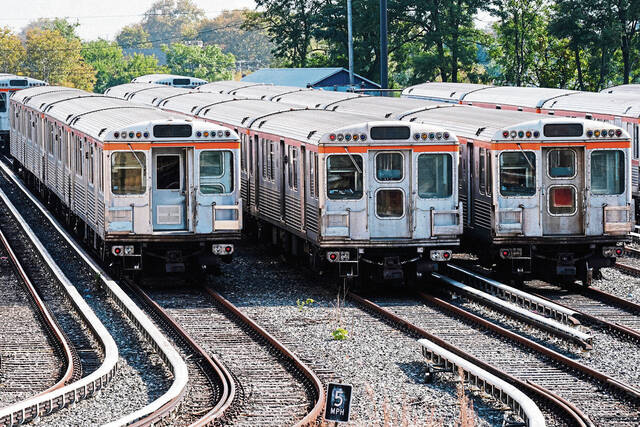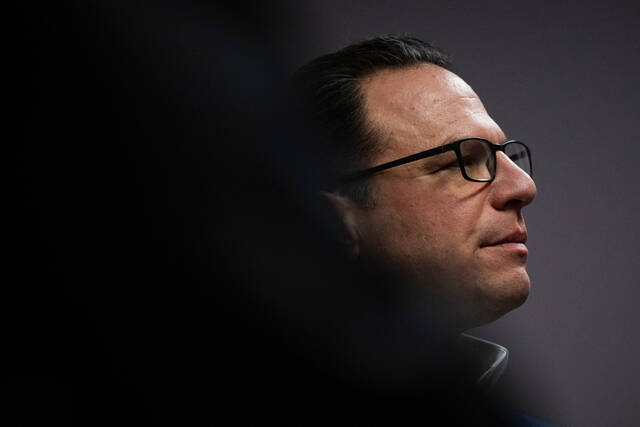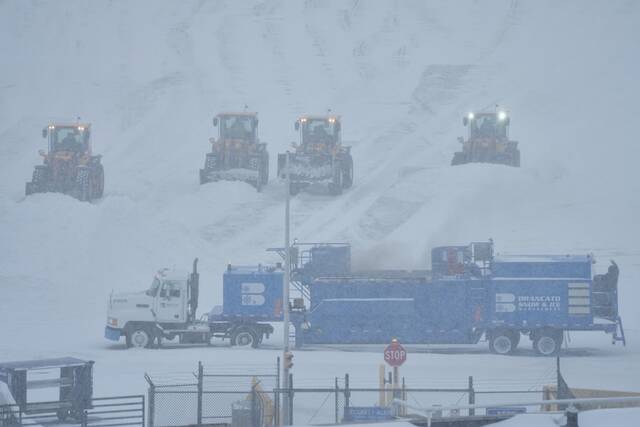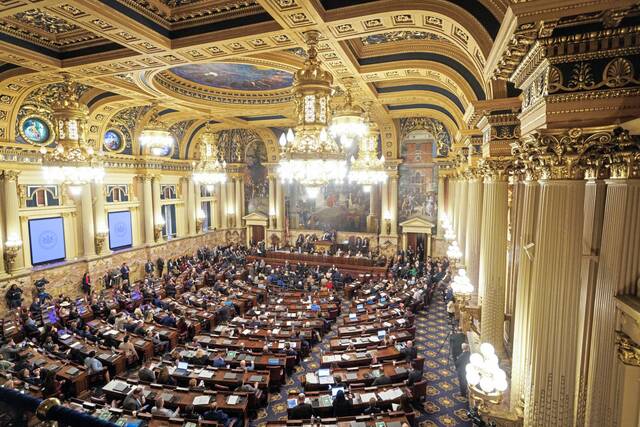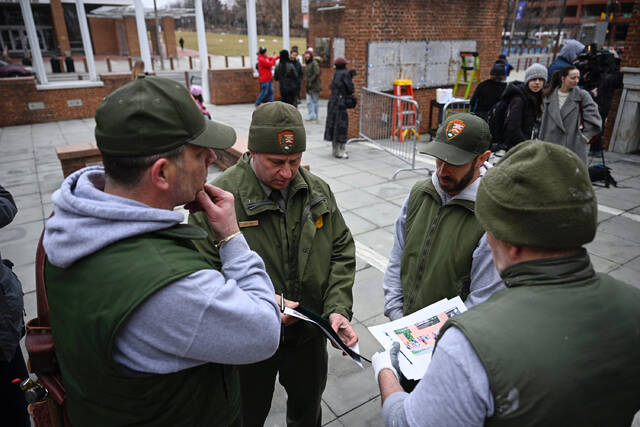The highest-ranking Republican in the state Senate described the looming service cuts and fare hikes at Pennsylvania’s largest transit agency as a “manufactured crisis” that doesn’t need to happen.
“This is (the Southeastern Pennsylvania Transit Authority) wanting exactly what they want and holding everyone hostage,” said Senate President Pro Tempore Kim Ward, R-Hempfield.
After Republican and Democratic proposals to provide more funding for transit agencies stalled last week in Harrisburg, SEPTA said it would begin making major cuts starting Aug. 24.
The agency, which had been facing a $213 million budget deficit going into this fiscal year, said it will ultimately eliminate 45% of its bus and train service and raise fares by 21.5% — moves that SEPTA officials have said could begin a “death spiral” at the agency.
“There is no reason for any lines to be cut right now. There is no reason for it except they are manufacturing a crisis to try to get what they want,” Ward said.
Senate Minority Leader Jay Costa, D-Forest Hills, called Ward’s comments “insulting,” noting the first round of cuts will take effect a day before Philadelphia children return to school and impact commuters across a five-county region that is home to 4.2 million people.
“This is a crisis,” Costa said.
SEPTA did not respond to questions.
“There is money just sitting there. Checks could be going out today and none of these cuts would be necessary,” Ward said, alluding to the $1.2 billion proposal in the GOP-controlled Senate, which was shot down by two committees in the Democrat-led House.
It would have dedicated more than $292 million to transit agencies and another $292 million to roads and bridges this fiscal year and increased those amounts to $300 million next fiscal year. It would have used about $750 million from the Pennsylvania Public Transit Trust Fund.
Democrats and SEPTA and PennDOT officials argued against taking money from the trust fund, which provides essential money for capital projects such as replacing buses and trains, upgrading rail lines and signals, and improving facilities. They also were seeking a long-term funding plan instead of the two-year stopgap proposed by GOP senators.
“Two years is not the sustainable solution we were hoping for. We need something that’s going to carry us into the future so we can do all the things that people want us to do to be more efficient and more cost-conscious,” Scott Sauer, general manager of SEPTA, said during a committee hearing last week.
The House proposal would have increased the share of sales tax revenue going to transit agencies, providing more than $292 million in new annual funding for transit agencies in perpetuity. The bill also would have included money for highway projects and improvements to smaller, rural roads.
After the bill passed the House, the Senate did not bring it up for a vote.
Republicans expressed concerns about permanently dedicating a bigger share of sales tax revenues to transit, resulting in less money available for other programs as lawmakers are still trying to reach a deal on the larger state budget and address a multibillion-dollar structural deficit.
The budget impasse reached 48 days on Sunday.
So now what?
Both Ward and Costa suggested that a source of long-term funding could come from taxing skill games that have become ubiquitous at bars, convenience stores, fraternal clubs and elsewhere.
Finding a consensus on how to regulate and tax the machines has been part of the ongoing budget negotiations. Projected revenues vary widely, but it could generate hundreds of millions of dollars in revenue for the state.
“We have been talking about that money going to mass transit — that’s what the conversation has been, and to transportation in general. I’m just wondering why it’s not part of the conversation right now,” Ward said. “It makes so much sense to me. The time to be discussing this is now if we’re looking for recurring revenue for mass transit and roads and bridges.”
“We agree with that,” Costa said. “We’ve said, ‘We’re OK with that, let’s move that.’ ”
“(Republicans have) had the ball in their court, but they don’t move these (proposals). They can’t come to a consensus in their own caucus,” Costa said.
“We have a consensus in our caucus,” Costa said of the Democrats. “We stand ready to be able to support a skill-games program that allows for a generation of revenue to pay for transit and to pay for roads and bridges. We just need to act on it, and (Republicans) haven’t been able to put it on the table.”
Costa said lawmakers may need to come up with a stopgap to provide transit funding for six months to a year until money starts flowing in from a would-be skill games tax.
“We may need something to bridge that gap. We’ve been looking at (other) gaming funds and at the trust fund, as long as the trust fund would be paid back,” Costa said.
“The top of my list is to get this done,” Ward said. “It’s really to get the entire budget done, and this mass transit issue is part of the entire budget. We have to worry about all of that.”


